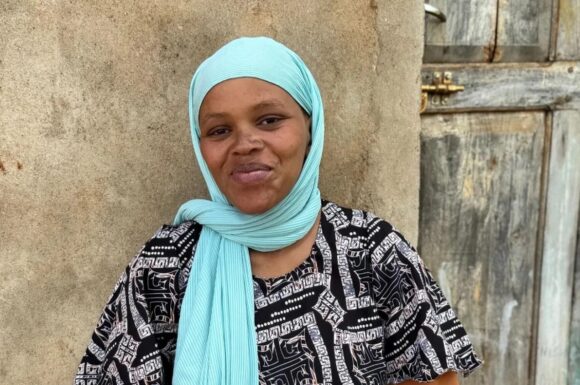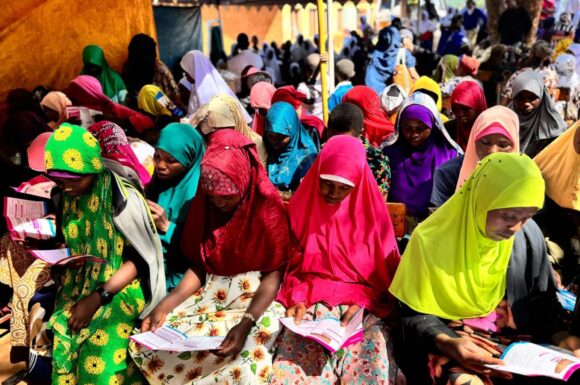Asha grew up in a community where a girl’s destiny was often predetermined, marriage and motherhood took precedence over education and personal ambition. She, like many others, had big dreams; she aspired to be a nurse, to heal the sick and serve her community. But fate had different plans.
I believed that education was my key to a brighter future, but the voices around me kept saying otherwise.
-Asha
Peer pressure and societal norms took their toll. By the time she was in her second year of secondary school, a friend who had already dropped out and become a young mother, convinced her that schooling was a waste of time. She was told that getting married and having children means she would have everything she needed and so, like countless other girls in her village, Asha stepped away from the classroom.

Without guidance from parents or teachers, Asha navigated puberty in confusion. When she got her first period, she was overwhelmed with fear and shame. She was terrified and didn’t know what was happening to her. No one had ever spoken to her about menstruation and she felt like she was doing something wrong just by existing.
During her periods, Asha often missed school, believing she had to stay indoors as the community discouraged girls from being active while menstruating. The stigma surrounding menstrual health left her isolated and uninformed. For many young girls in her village, menstruation wasn’t just a biological process but a barrier to their future.
Eventually, Asha became pregnant. The journey into motherhood was overwhelming, but she found solace in the nurses at her clinic, who reassured her and encouraged her to embrace the future with courage.
I was scared to ask questions about my own health, but the kindness of some nurses helped me understand that I had the right to know and take charge of my body.
-Asha
Determined to provide for her child, Asha searched tirelessly for work. A breakthrough came when she was selected to be a local government election supervisor during Tanzania’s local government elections. This role exposed her to governance and leadership and she found herself drawn to decision-making spaces. Asha’s leadership potential did not go unnoticed. When an opportunity arose for training on sexual and reproductive health, entrepreneurship and life skills, she seized it. The experience was life-changing.
For the first time, I was in a room full of young people like me, learning, sharing and realising that I wasn’t alone. I belonged here.
-Asha
She absorbed every piece of knowledge with a hunger fueled by years of unanswered questions. With confidence, she learned to advocate for her health, protect herself and her child from HIV and empower other young girls to do the same. Armed with information and an unshakable passion, Asha didn’t keep her newfound wisdom to herself. She became a peer educator, reaching out to girls in her village, especially those in Bereko Secondary School, equipping them with life-saving knowledge on reproductive health and self-agency. She told herself that if she could help even one girl make an informed decision about her future, then her struggles wouldn’t have been in vain.
Asha has already mentored five girls and actively follows up with them to ensure they understand their rights and choices. On International Women’s Day, she successfully mobilised young girls to visit reproductive health service booths, get tested and receive counselling, a victory she considers one of her greatest achievements.

Asha understands that financial freedom is key to breaking cycles of dependency and oppression. She has ventured into entrepreneurship, buying bananas in bulk and selling them at a profit in Bereko’s marketplace. Today, she earns up to 150,000 Tanzanian Shillings a month, a testament to her determination and business acumen. Financial independence gave her a voice and allows her to make decisions for herself and my child without fear or limitation. Asha believes every woman deserves this. Asha is no longer just a young woman who overcame hardship, she is a force of change. She actively tracks national policies on girls’ education and reproductive rights, ensuring that young women in her community stay informed and empowered.
Taking small steps might seem insignificant, but every little action contributes to the bigger fight for gender equality and women’s rights. We must all take part.
-Asha
This story is part of our ongoing series highlighting the impact of the Vijana Tunaweza program. To learn more about how Restless Development is empowering first time young mothers across Tanzania and beyond, visit our website or follow us on social media.
